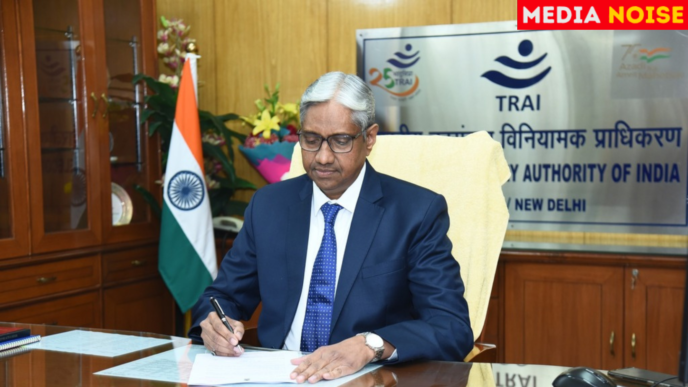New Delhi: As artificial intelligence (AI) continues to revolutionize various industries, concerns about the authenticity and origin of digital content have become increasingly prominent. In a recent report, EY-FICCI highlighted the urgent need for India to develop a robust content tracking system to combat the challenges posed by AI-generated content.
The report, titled “Identifying AI Generated Content in the Digital Age: The Role of Watermarking,” emphasizes the importance of enabling consumers to distinguish between human-generated and AI-generated material. It warns that the growing sophistication of AI algorithms makes it increasingly difficult to differentiate between the two, leading to potential issues such as misinformation, copyright infringement, and a loss of credibility in digital content.
Rajnish Gupta, Partner at EY India, stressed the significance of watermarking as a solution to this problem. He explained that by encrypting watermarks into AI-generated content, developers can enhance its traceability and authenticity. Gupta emphasized the need for robust watermarking techniques that are resistant to tampering and detection systems that can accurately identify AI-generated content while minimizing false positives.
Jyoti Vij, Director General of FICCI, echoed the sentiment, stating that the rise of generative AI necessitates the establishment of safeguards to ensure transparency and trust in the digital world. She urged India to take a proactive approach and lead the way in developing secure and innovative AI content creation practices.
ALSO READ: Vodafone Idea Signs $3.6 Billion Network Equipment Deal
Key Concerns and Challenges
The report outlines several key concerns associated with AI-generated content, including:
- Deepfakes: AI can be used to create highly realistic, yet fabricated, videos or audio recordings that can be used to spread misinformation or manipulate public opinion.
- Copyright Infringement: AI can be used to generate content that infringes on existing copyrights, leading to legal disputes and economic losses.
- Fake News: AI-generated content can be used to spread false or misleading information, undermining public trust and democratic processes.
- Social Manipulation: AI can be used to target individuals with personalized misinformation or propaganda, influencing their beliefs and behaviors.
Building Trust Through Content Detection
Watermarking is presented as a promising solution to address these challenges. By embedding unique identifiers into AI-generated content, watermarking can help trace its origin and verify its authenticity. This can enhance transparency, accountability, and trust in AI systems.
The report calls for India to take a leading role in developing and implementing watermarking technologies. By establishing robust frameworks and standards, India can contribute to building a secure and trustworthy digital ecosystem.
Global Efforts and Ethical Considerations
The report also highlights the growing global recognition of the importance of content tracking and detection. Governments worldwide are exploring various approaches, including watermarking and other technical solutions, to address the challenges posed by AI-generated content.
However, the report emphasizes the need for a multi-layered approach that encompasses both technological advancements and ethical considerations. It is essential to strike a balance between protecting content and respecting individual privacy.
By addressing these challenges and taking a proactive stance, India can play a pivotal role in shaping a future where AI is used responsibly and ethically for the benefit of society.













